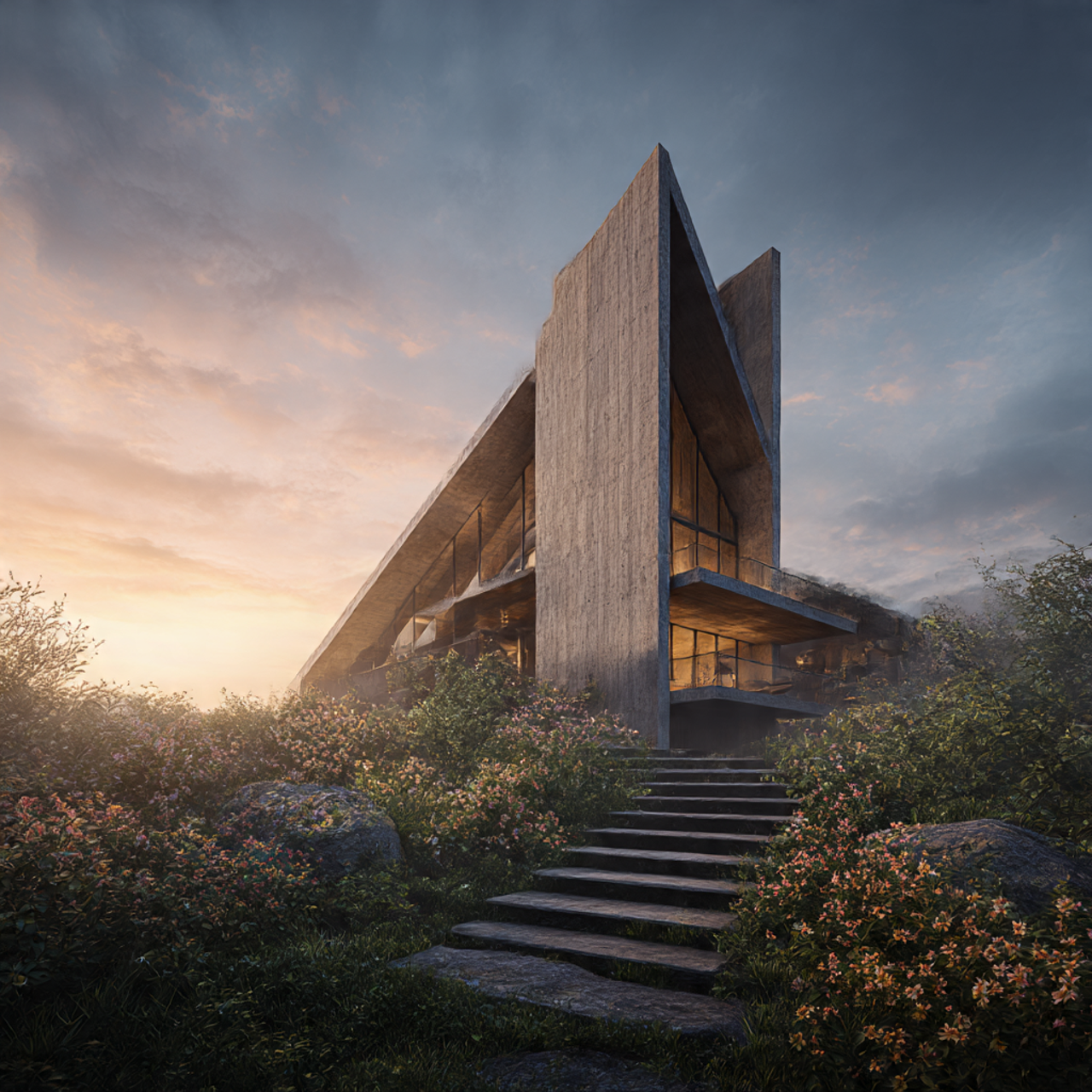Evergreen Content Ideas That Attract Ideal Clients
Stop Creating Content That Dies in 30 Days
Most architecture blogs are filled with temporary content:
- Project announcements
- Award wins
- Trend-of-the-week posts
Sure, they get a few clicks. But 90 days later? They’re dead weight.
If you’re building a visibility engine — not just a marketing archive — you need evergreen content.
Evergreen content doesn’t chase attention. It compounds value.
It ranks longer. Builds trust faster. Converts better.
Let’s break down the most powerful, always-relevant content types design firms can publish to attract ideal clients — and never go out of style.
Key Takeaways – Evergreen Content That Attracts Ideal Clients
- Stop posting trend-based content — it dies fast.
- Evergreen content compounds — it ranks, builds trust, and converts.
- Focus on timeless formats: FAQs, process guides, pricing explainers, case studies, and style guides.
- Refresh and interlink your evergreen posts yearly.
- One evergreen article can outperform ten short-lived posts.
👉 Build content that sells for years, not weeks. Start Your Free Visibility Diagnostic →

What Is Evergreen Content (and Why It Works for Architects)?
Evergreen content is timeless. It solves a lasting problem or answers a common question your ideal client will still be asking 6, 12, even 36 months from now.
It’s not seasonal. Not trendy. Not news-based. It’s the backbone of any long-term SEO strategy — It’s the backbone of any long-term SEO strategy — especially if you’re following Architecture SEO Trends in 2026.
Evergreen content:
- Ranks for high-value keywords
- Attracts new visitors month after month
- Supports every stage of your client journey
It’s your digital sales rep — always on, always relevant, always converting.
1. FAQs and Educational Explainers
These are content workhorses — because they answer real client questions.
Examples:
- What Does an Architect Actually Do? (Process Breakdown)
- How to Choose the Right Architect for Your Project
- What to Expect in an Initial Architecture Consultation
- Do I Need an Architect or a Design-Build Firm?
These are questions you’ve answered 1,000 times — now you answer them once in blog format, and Google delivers it to your next 1,000 prospects.
Bonus Tip:
Structure with headers and bullets so you land Google featured snippets — a trick used in our SEO Content Ideas for Architecture Blogs playbook.
2. Process Guides and Timelines
Clients are anxious about what they don’t know. You can ease that anxiety — and position your studio as the expert — by mapping the journey.
Examples:
- Step-by-Step Guide to Designing a Custom Home
- From First Meeting to Final Drawings: Our Architecture Process
- Timeline: How Long Does It Take to Design and Build?
This content works for:
- SEO (people search these questions)
- Sales (saves your team explanation time)
- Trust-building (you look organized and transparent)
This type of content doubles as sales collateral — the same principle covered in UX Design Principles That Convert for Architecture Websites
3. Budgeting and Pricing Content
Nothing builds trust faster than financial clarity.
Examples:
- How Much Does It Cost to Hire an Architect in [City]?
- Understanding Architecture Fees: Hourly vs Fixed vs Percentage
- Budgeting for a Whole-House Remodel: What to Expect
Even if you don’t list specific numbers, discussing pricing structures helps clients self-qualify and positions you as open and professional.
Evergreen pricing content filters out tire-kickers and attracts serious buyers — a core insight from High-Value Design SEO
4. Service Page Deep Dives
Your service pages are the most underutilized content assets.
Turn each one into a mini content hub:
- Detail your process
- Link to related blog posts and case studies
- Answer specific use cases
Examples:
- Residential Architecture: From Concepts to Construction
- Hospitality Design Services: What We Offer and How We Deliver
- Commercial Renovations: What Sets Our Process Apart
When you combine SEO + education + positioning on a single service page, you not only rank — you convert.
5. Style and Design Guides
High-end clients want to know that you understand their aesthetic goals.
Examples:
- Modern vs Traditional Architecture: Key Differences
- Popular Styles in [City]: A Visual Guide for Homeowners
- How to Choose the Right Architectural Style for Your Project
Visual + written content here works especially well. It performs on:
- Blog
- SEO (because people still Google “modern vs contemporary architecture” every month)
6. Project Process Case Studies (Evergreen-Formatted)
We’re not talking about photo dumps. We’re talking about educational, search-optimized case studies.
Examples:
- Designing a Family Home with Universal Accessibility Principles
- From Fixer-Upper to Custom Dream Home: A Step-by-Step Transformation
- Passive Solar Home in [City]: How We Solved for Light, Heat, and Budget
Case studies like these don’t expire. They:
- Demonstrate your process
- Showcase your values
- Rank for project-type and location-specific queries
Make each one answer the client’s question: “Could they do this for me?”
These act as evergreen SEO magnets — ranking for project types, methods, and locations. They’re also the perfect match for your Architecture SEO Pyramid of Success foundation.
7. Planning Tools and Downloadable
Turn internal checklists into lead magnets.
Examples:
- Project Planning Workbook: From Idea to Build-Ready
- Homeowner’s Guide to Working with an Architect
- Budget Planning Template for First-Time Renovators
These aren’t just lead generators — they become your sales collateral for warming cold leads and upselling undecided clients.
Tip: Promote these evergreen resources on your homepage, footer, and most-read blogs to capture traffic year-round — an approach we detail in Keyword-to-Inquiry SEO Mapping.
8. Mistakes, Myths, and Misconceptions
Nothing builds trust like busting myths. You earn credibility by telling the truth.
Examples:
- 7 Common Architecture Myths (And What’s Actually True)
- Why Most Renovation Projects Go Over Budget (And How to Avoid It)
- What HGTV Gets Wrong About Designing Custom Homes
Content like this performs because:
- It’s honest
- It’s relatable
- It answers questions people are too afraid to ask
This “truth-first” content model is what separates authority brands — and it’s the same framework discussed in Common SEO Mistakes Architecture Firms Make (and How to Fix Them).
9. Evergreen Thought Leadership
Most “thought leadership” is really just thought noise. But if you focus on timeless insight — not industry gossip — it becomes a brand differentiator.
Examples:
- Why We Believe Great Design Solves More Than Aesthetic Problems
- Our Philosophy: Architecture as a Tool for Community Impact
- What Every Architect Should Be Teaching Their Clients
This positions you as a firm of principles — not just professionals. It gives clients something to buy into — not just buy from.
How to Keep Evergreen Content Working Year After Year
Even evergreen needs occasional maintenance.
1. Revisit and Refresh Annually
- Update stats or code changes
- Refresh examples with newer projects
- Improve meta descriptions and headers
2. Interlink Old Posts to New Ones
- Keep content clusters strong
- Add “You Might Also Like” links
3. Promote Seasonally (Even If It’s Not Seasonal)
Use newsletters and social to cycle traffic back to evergreen posts
This is how one piece of content becomes:
- An SEO anchor
- A sales primer
- A lead magnet
- A brand trust-builder
Evergreen Content Checklist
- Solves a problem your clients always have
- Built around long-tail, high-intent keywords
- Easy to navigate, read, and repurpose
- Doesn’t require constant updating
- Connects to your services and client pain points
- Answers the question: “Why should I trust this firm?”
One solid evergreen piece is worth 10 one-week wonders.
Evergreen Content Strategy for Architecture Firms
1. How often should we publish evergreen content?
Start with 1–2 pieces per month. Prioritize quality and strategic alignment over quantity.
2. Can evergreen content still rank competitively in 2026?
Yes. In fact, Google rewards consistent, helpful content over time — especially content that stays updated and well-linked.
3. How do I know if a topic is evergreen?
Ask: Will my ideal client be searching for this 12 months from now? If yes, it’s likely evergreen.
4. Do we need to optimize evergreen content differently?
Not really — just follow SEO best practices: keyword clarity, structure, meta tags, fast load, internal linking.
5. How does this fit with our project-based content?
Evergreen posts create context and traffic; case studies create proof. Together, they convert.
Want Us to Build Your Evergreen SEO System?
At Adswom, we don’t create content calendars — we build content engines.
- Keyword strategy mapped to business goals
- Evergreen hubs built for long-term growth
- Blog, case study, and lead magnet development
Start Your Free Visibility Diagnostic →
Let’s find out which evergreen content is missing — and what it’s costing you.
Writing team:

Les't communicate.
Recent Articles
 The Real Cost of Generic SEO for High-End Architecture and Interior Design Studios
The Real Cost of Generic SEO for High-End Architecture and Interior Design Studios
 Why Generalist SEO Fails Designers — And What to Do Instead
Why Generalist SEO Fails Designers — And What to Do Instead
 What to Look for in an SEO Agency: A Strategic Guide for Architects and Design Firms
What to Look for in an SEO Agency: A Strategic Guide for Architects and Design Firms

